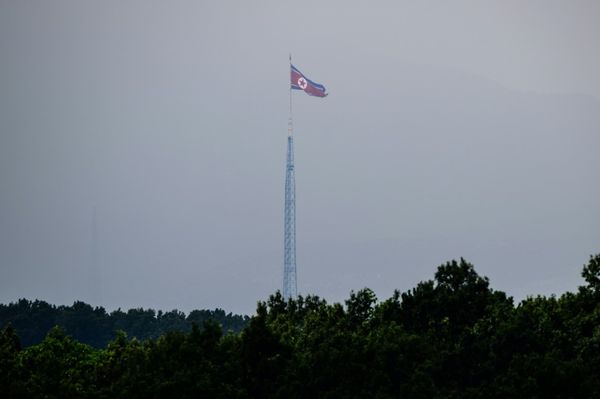
One of the key negotiators of the Belfast/Good Friday Agreement has urged that the sense of a “covenant of honour” between equally legitimate traditions with equally legitimate aspirations is restored to Stormont.
The landmark 1998 accord is credited with having brought the worst violence of Northern Ireland’s troubled past to an end, but the often collapsed Assembly has been criticised.
Former SDLP leader Mark Durkan said while there is room for “justifiable criticism”, there should be a return to “that sense of a covenant of honour”, where parties with political differences “conduct themselves in the institutions of government in a spirit of reconciliation”.
In an interview with the PA news agency ahead of the 25th anniversary of the agreement, he said while he stands by what was negotiated, it needs to be brought forward by this generation in a positive way.
This includes a call to return to the Assembly electing the First and deputy First Ministers, rather than the changes in the 2006 St Andrew’s Agreement to allow the largest two parties to nominate the top posts.
Mr Durkan recalled heated exchanges and rows in the corridors of Castle Buildings in April 1998, and how securing the agreement had been “touch and go” with some distance remaining between the parties even in the final days.
He said while unionists had their reservations, particularly around the release of prisoners and decommissioning, Sinn Fein was also sceptical and had posters erected saying “no return to Stormont”, as well as criticising an early paper as a “partition solution”.
“On paper when you looked at how far apart parties were on institutional models and on questions around decommissioning and policing,” he said.
“But we (the SDLP) were determined so we worked on constantly refining our proposals, our ideas to take account of some of the criticisms we were hearing from others.”
He said a draft text produced by talks chairman George Mitchell was criticised by unionists over strand 2 around north-south institutions, while his party felt strand 1 around the political institutions was inadequate.
“There would have been angry corridor exchanges, and shouting matches on the stairwells of Castle Buildings,” he said.
On the evening of April 9, the parties came back together for talks, which Mr Durkan said they had expected to be difficult, but ended up going smoothly, being more productive than expected, and a number of pieces of the puzzle simply “clicked”.
Mr Durkan went on to serve as finance minister and deputy first minister in the Stormont Assembly.
He said there were political differences between the SDLP and UUP that could make their relationship seem “terse and tetchy”, they had a productive relationship within the power sharing institutions.
He described the periods of suspension in the early years of the Assembly as due to issues such decommissioning and IRA activity, and not due to relations between the SDLP and UUP, or any of the other parties.
“There is a difference between the problems that stopped the Assembly sitting from 2017 to 2020, and again in the last year, that is because of a failure within the institutions and particularly due to changes made during the St Andrew’s Agreement,” he said.
But Mr Durkan said the British and Irish governments did not live up to their titles as co-guarantors, allowing periods of Assembly suspension to drag on, setting a dangerous precedent.
“When you have the governments signalling that you can still have the agreement and the process even without the institutions, you create a bit of a moral hazard, we see that now with Sinn Fein keeping the Assembly in abeyance for three years, and the DUP doing it now, so when the two governments criticise that, they maybe need to reflect they helped create that moral hazard,” he said.
Mr Durkan said the lack of a functioning Assembly on the anniversary of the agreement may mar celebrations slightly, but “doesn’t invalidate the achievement of the agreement itself”.
“The most important part of the agreement is that it was endorsed overwhelmingly by the people in the north, and in the south,” he said.
“By getting a clear majority of people in the north, it makes it legitimate for unionists in Northern Ireland, by having majorities north and south you clearly have a majority on the island as a whole so that means you’re respecting and recruiting the sense and source of legitimacy for nationalists as well.
“Lets remind ourselves of the hope, and lets also remind ourselves that we’re not going to be able to just do away with that agreement just because there are frustrations and there have been difficulties, because you’re not going to be agree anything better, or an alternative.
“The best thing to do is to go back and agree to better implement that agreement, adjust it so it lives and breaths in a more workable way for a new generation.
“We can uphold the agreement, keep its main principles, but also take it forward in a positive way that is healthy for everybody.”







